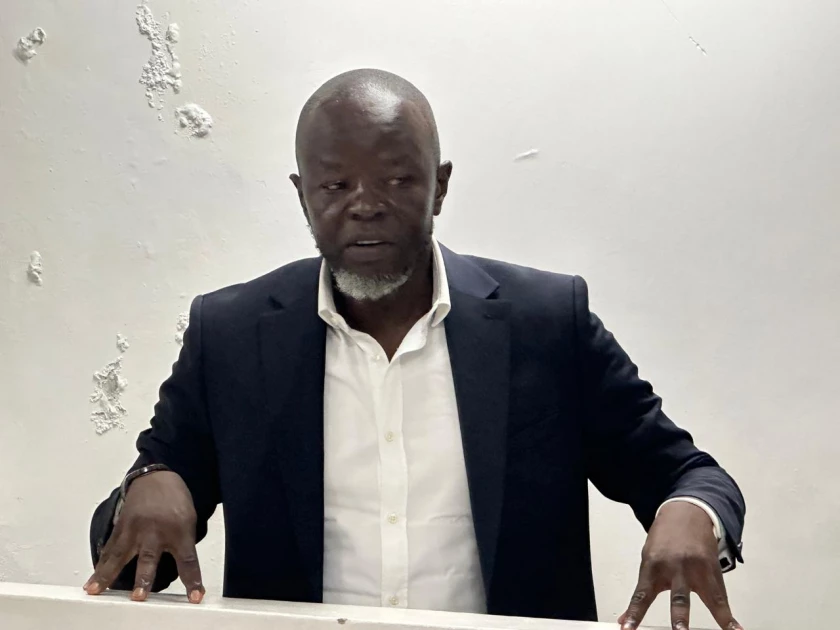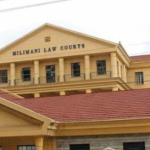Hours after the High Court issued an order compelling the Inspector General of Police to produce missing politician and businessman Phillip Aroko, police officers presented him at Jomo Kenyatta International Airport (JKIA) Court at 3pm.
The dramatic appearance followed mounting pressure from Aroko’s legal representatives, who had demanded answers over his whereabouts after he was reportedly held incommunicado since his arrest.
In a miscellaneous application, the State revealed that preliminary investigations had uncovered a web of connections linking Aroko to the recent murder of the Kasipul Kabondo Member of Parliament.
According to the prosecution, Aroko has emerged as a central suspect for, not only due to alleged threats he made against the slain MP, but also for what investigators believe was his financial role in planning the assassination.
“The respondent has been directly linked through communication records and financial trails to multiple persons of interest,” the State counsel told the court. “Evidence points to organised meetings held in Homabay, Nairobi, and Nakuru—all of which form part of the planning stages that preceded the MP’s death.”
Investigators are now analysing financial transactions believed to have originated from Aroko, allegedly used to fund the crime. Authorities also noted that several locations where key meetings were held have yet to be fully documented, and that multiple witnesses are still being traced and interviewed.
The court further heard that the deceased MP had lodged reports of threats—allegedly from Aroko—at the DCI regional headquarters in Nairobi.
“Some of the individuals who can provide key testimony are now living in fear and have not yet come forward,” the State counsel said, as the prosecution sought 30 days of custodial detention to complete investigations and ensure witness protection.
In response, Aroko opposed the lengthy detention, citing personal and family health concerns.
“Thirty days is crazy. I have a family and I am on medication which I must access regularly. On the issue of interfering with witnesses, there is a government. I do not have the machinery to interfere with witnesses,” he submitted.
He also pleaded for a change in remand location, highlighting the health condition of his wife.
“I was at Kasarani Police Station away from my wife, who is also sickly. I pray I be remanded at Kileleshwa where my wife and family are.”
Aroko requested a five-day custodial period and assured the court of his willingness to cooperate and present himself as required.
In her ruling, JKIA Law Courts Principal Magistrate Irene Gichobi acknowledged Aroko’s voluntary appearance and his assurances to cooperate, consequently allowing the prosecution seven days.
“The respondent presented himself. He has demonstrated that he will avail himself. I give custodial orders of seven working days, and he will be remanded at Kileleshwa Police Station,” she directed.



